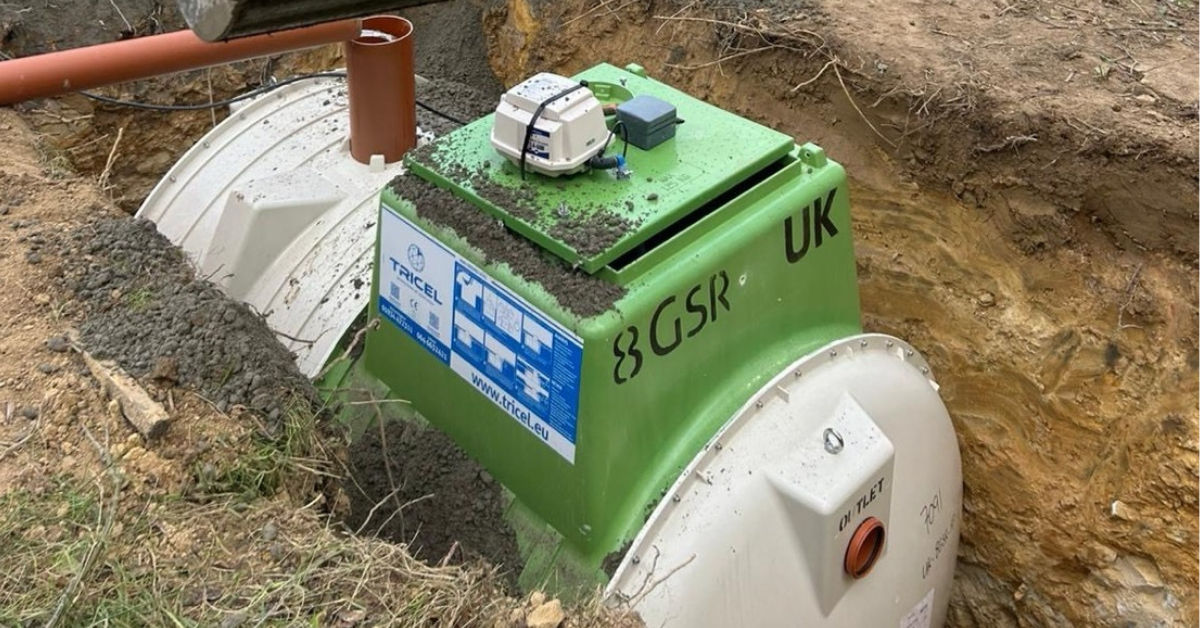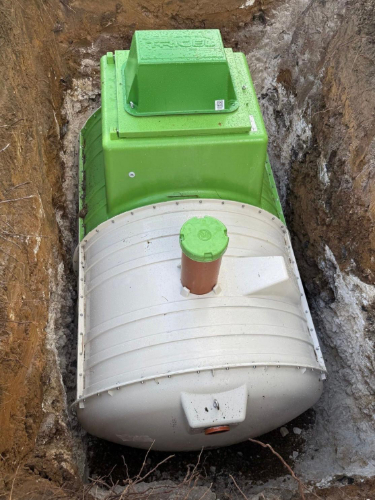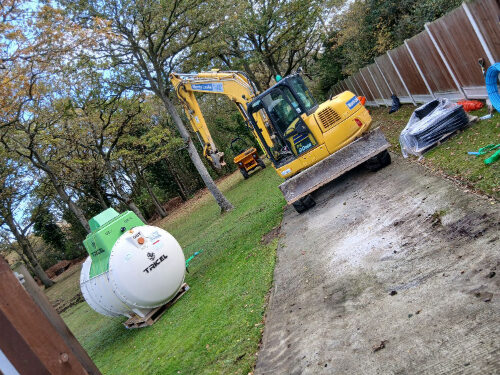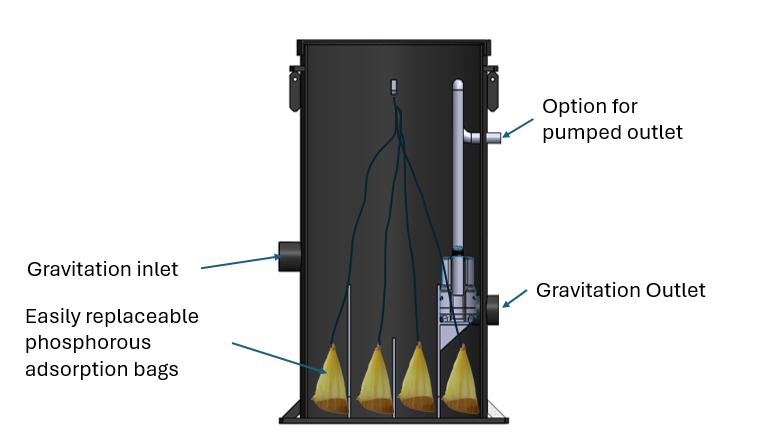
Home » Wastewater Treatment » Phosphorus removal
If you have any questions, feel free to call us
Phosphorus Removal in Wastewater Made Simple
Phosphorus removal is a key part of treating wastewater, especially in homes that use a treatment system rather than a mains sewer. When too much phosphorus ends up in local water sources, it can lead to serious environmental problems like algae overgrowth and poor water quality.
You might hear different terms—phosphorus, phosphate, and phosphorous—and it’s easy to get confused. Put simply:
Phosphorus is the chemical element found in all living things.
Phosphate is the form it takes when combined with oxygen, and it’s commonly found in household products like detergents and cleaning agents.
Phosphorous just means “containing phosphorus”.
In most wastewater treatment discussions, it’s phosphate that causes concern, because it can wash into rivers and lakes and upset the natural balance. That’s why modern systems often include phosphorus removal to help reduce the amount released into the environment and stay in line with local regulations.
Why is phosphorus removal important?
Importance for Nature
While phosphorus is vital for plant and animal life, high concentrations in wastewater can cause serious environmental and health problems. When released into natural water bodies, excess phosphorus leads to eutrophication—an overgrowth of algae that depletes oxygen and creates “dead zones,” harming fish and other aquatic species.
This pollution is largely driven by human activities, including agricultural runoff, household detergents, and sewage discharge. These sources contribute significantly to the phosphorus load in water systems.
That’s why efficient phosphorus removal in wastewater is essential. Proper treatment helps prevent ecological damage, protects aquatic ecosystems, and reduces health risks caused by algal toxins in drinking water.
Importance for planning
Excess nutrients—particularly nitrogen and phosphorus—are a major cause of water pollution in England, leading to eutrophication in freshwater habitats and estuaries. This results in rapid plant and algae growth, reduced oxygen levels, and long-term damage to aquatic ecosystems—especially in legally protected “Habitats Sites” under the Habitats Regulations 2017.
To protect these sensitive environments, nutrient neutrality has become a key requirement for new residential developments in affected areas. Local Planning Authorities (LPAs), following guidance from Natural England, now assess whether a development will add to existing nutrient pollution. If it does, planning permission may be denied. Visit Natural England website for a map of the Nutrient Neutrality Catchments.
Phosphates from sources such as human waste, fertilisers, and soil runoff are a significant contributor to this issue. The Environment Act 2021 now targets an 80% reduction in phosphorus from treated wastewater by 2038, setting strict expectations for the sector.

The Tricel PhosClear is our solution for phosphorus & E.coli removal in wastewater. It is designed to effectively reduce phosphate levels, ensuring compliance with environmental regulations and helping protect water quality. Whether you’re managing a domestic treatment system or a larger-scale installation, our product offers a reliable and efficient way to minimise phosphate pollution.
6 Key Reasons to Choose phosclear for phosphorus removal
There are many key reasons to choose Tricel PhosClear. Please find below some of them:
95% phosphorous removal
Easy to install & maintain
No chemical dosing required
Fast lead times
Scalable system
Accredited installation & servicing partners
How does it work?
Tricel Novo & PhosClear System
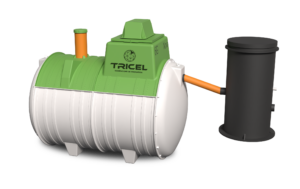

The process of removing phosphorus:
- The treated water from the Tricel Novo system enters the PhosClear treatment unit with gravitation through the inlet.
- Four bags with Polonite are placed in each of the four treatment chambers, and the water passes through the chamber alternately from top to bottom, and bottom to top.
- For a house with a nominal load, each year the four bags in the first chamber are removed, and the bags in the other chambers, are moved one chamber forward.
- The bags removes phosphorous through adsorption, and will also disinfect the treated water removing remaining E.coli bacteria.
- In the final chamber the treated water gravitates out of the system to the recipient. If it’s required to lift the water out of the system, and outlet optional outlet pump can be installed.
Plug & Play
Eco‑Friendly
UK‑Tailored Design
articles you may be interested in
Tricel product range
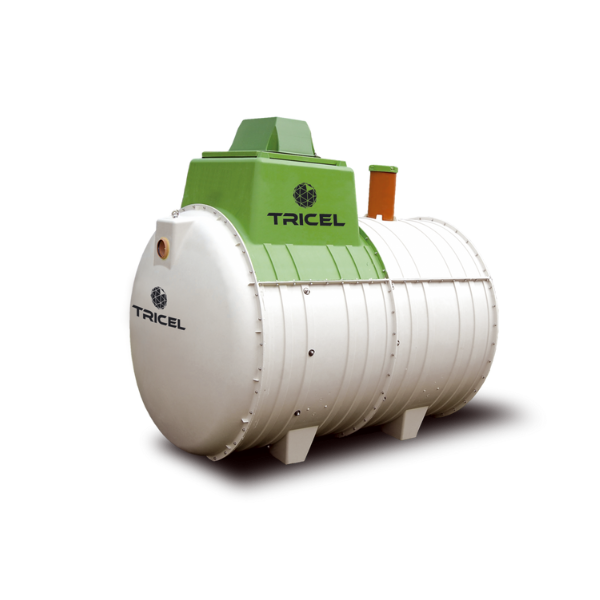
Tricel Novo Sewage Treatment Plant
Durable & long lasting SMC tank, shallow dig tank, easy installation (Plug and Play), long life components.
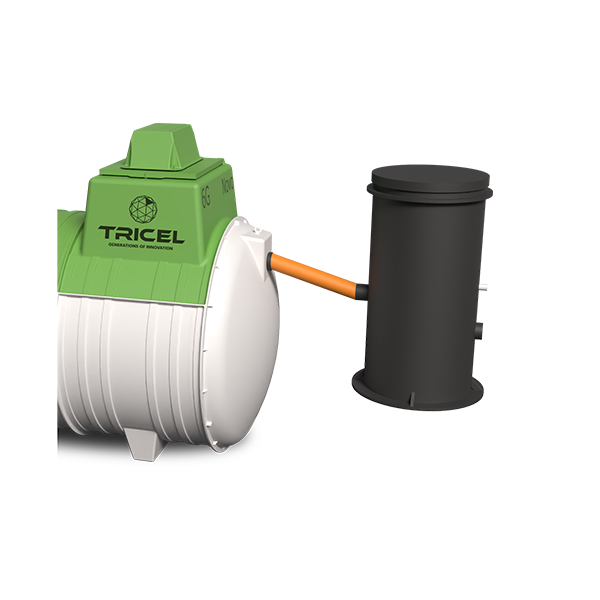
Tricel Phosphorus Removal
Tricel PhosClear is a ready-to-install system that reduces Phosphorus wastewater without using chemicals.
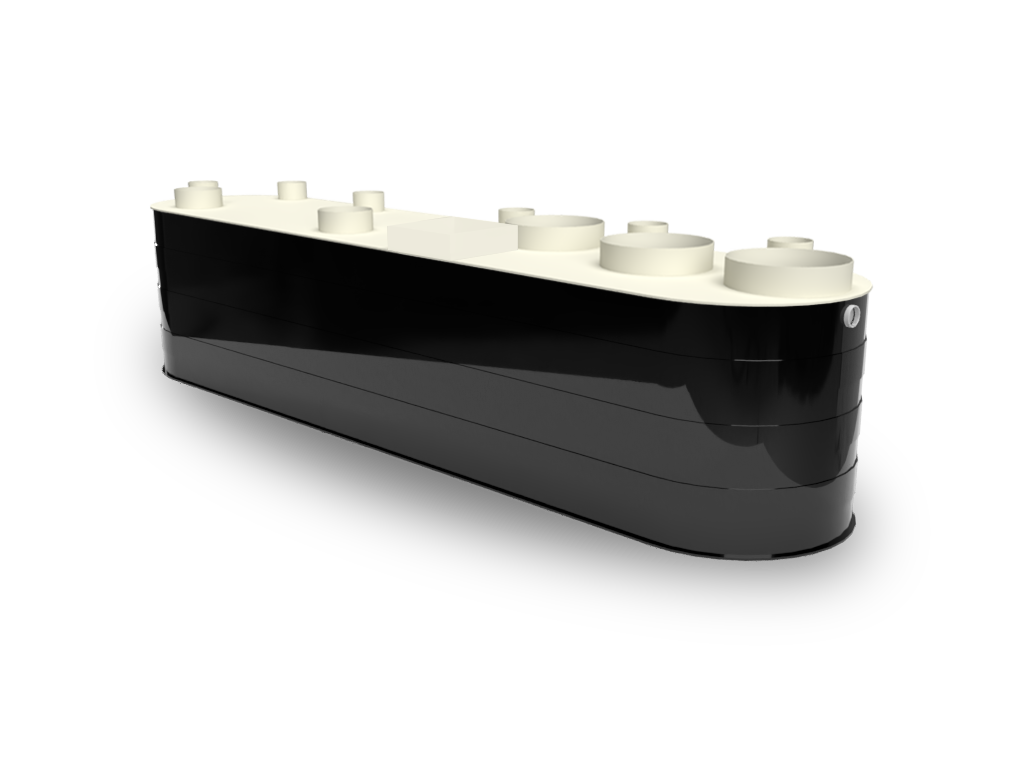
Tricel Maxus Sewage Treatment Plant
Commercial plant. Submerged Aerated Filter (SAF) technology. Ideal for every project over 50 Population Equivalent.
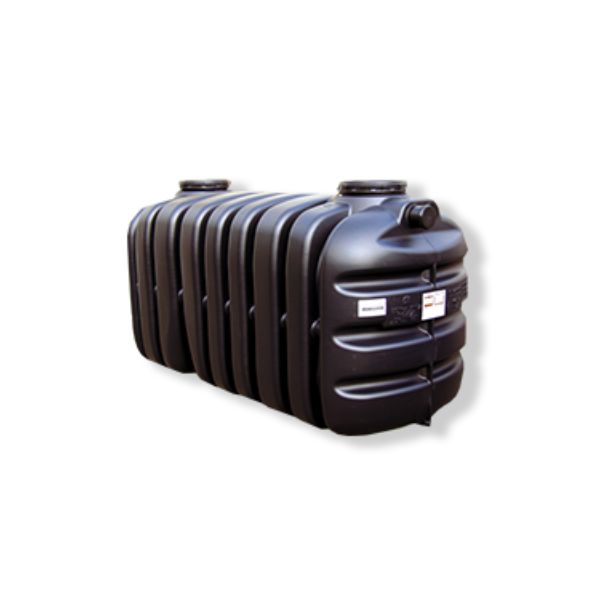
Tricel Vento
Septic Tank
Shallow dig tank, strong & robust underground tank, no electrical or moving parts.
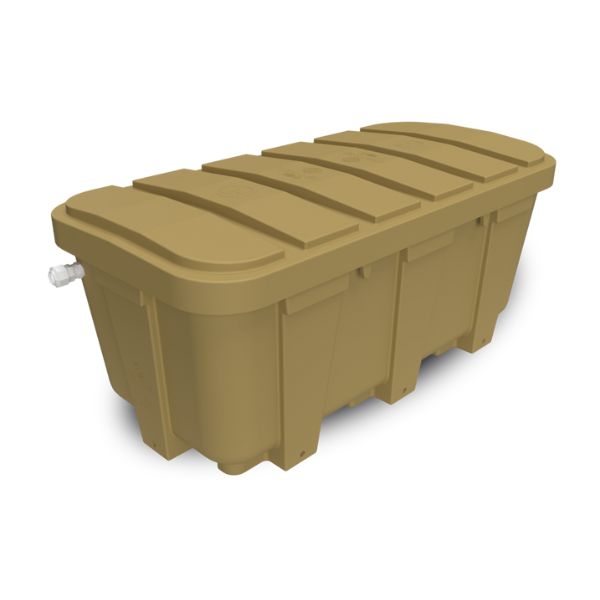
Tricel Tero Tertiary System
Next Generation tertiary wastewater treatment unit with proven E.Coli treatment capabilities.
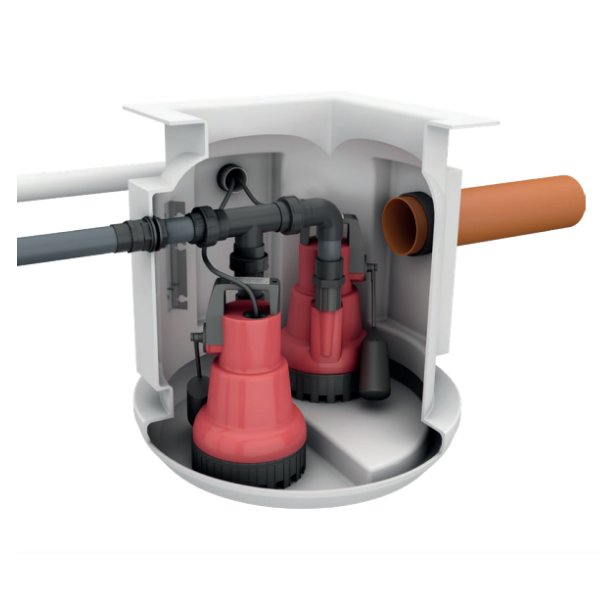
Tricel Pumping
Stations
Pump fluids from one place to another where gravity drainage cannot be used, easy and trouble-free installation.
50 YEARS IN BUSINESS
A highly successful multinational corporation with over 50 years’ valuable industry experience
SEWAGE TREATMENT PLANTS
Plants available for all capacities, from 1PE up to 50PE. Free advice on request.
FAST DELIVERY
On-time delivery is a core requirement of our successful business operations
